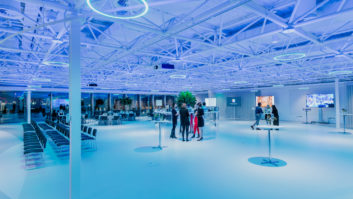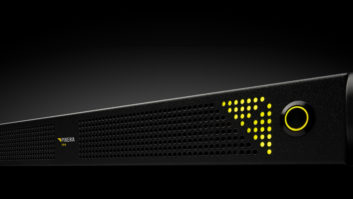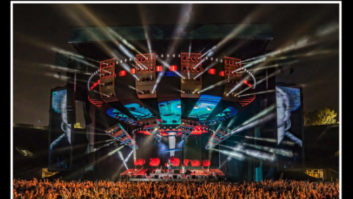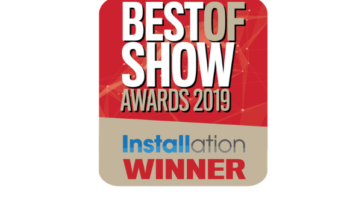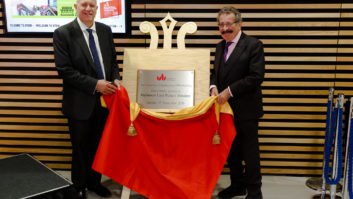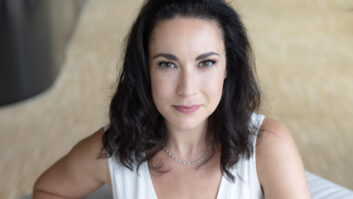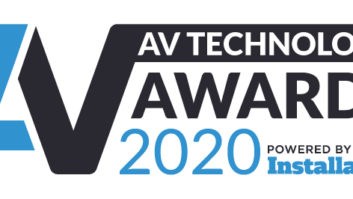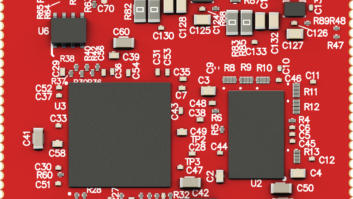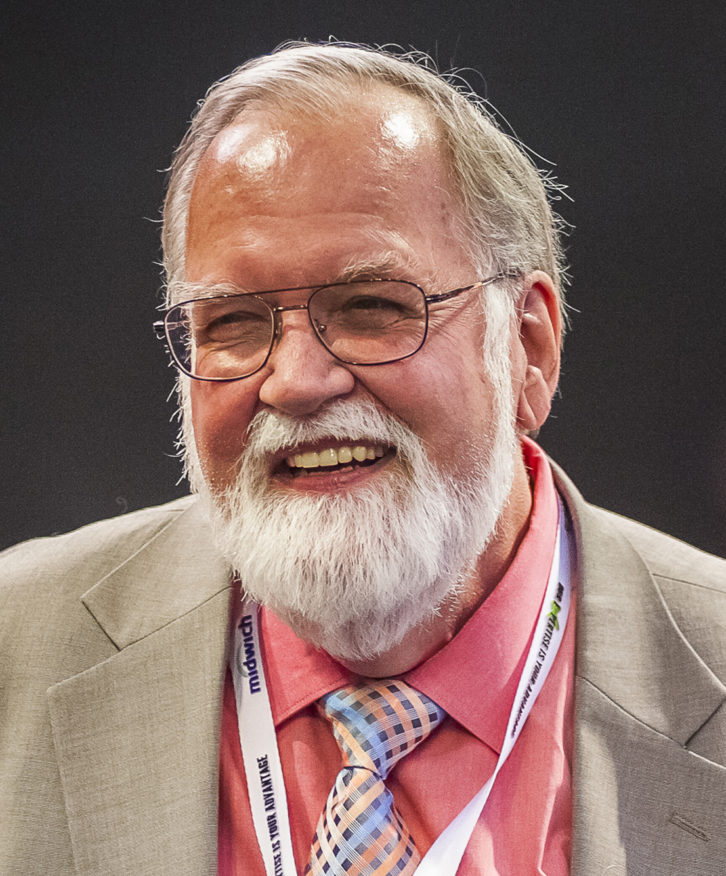
After more than two decades at AVIXA, outgoing chief global officer Terry Friesenborg is the recipient of our 2019 Outstanding Contribution accolade.
Terry has been instrumental in growing the trade association from a North America-centric group into a truly global one, bringing with him the education, standards, and CTS certification programmes that are increasingly common in the industry, not to mention the giant that is ISE. We caught up with Terry to talk about the past, present and future of the AV industry.
During your time with AVIXA it’s become more of a global organisation. How did you go about achieving this?
It’s been through a concerted effort to grow ourselves globally on multiple fronts. Certainly one is on the trade show side with the launch of ISE and the launch of our shows in China. We now have 10 trade shows globally. On the other side has also been a growth in our membership; about 35% of our membership is outside the US now, which is a dramatic difference from 20 years ago when maybe 1 or 2 percent might have been outside the US.
Certification seems to have become much more of a focus in recent years too. Can you tell me a bit about that?
Certainly, we’ve been doing certification for a very long time but I think when it really came into focus for us, particularly internationally, was when we committed to become ANSI ISO accredited. That accreditation is, as in any ISO accreditation, not an easy thing to get and also not an easy thing to maintain, but it speaks to the credibility of the certification and the stringent rules under which we operate our certification programme. That really changed how the conversation went when we talked about certification internationally, when we could we could take a look at its credibility and how it sits in the panoply of all those other certifications that are out there.
Certainly that growth in CTS, CTS-I, CTS-D has been spurred by that. Initially it took a hit when it become much harder to get it, but I think that that’s been really rewarding in terms of how much it’s grown over the past 10 years – and not just growing in the US but growing globally as well.
You’re also on the board of ISE, have you been surprised by the way that show has grown in recent years?
Pleasantly surprised, yes. Surprised is a tough word because that would imply that we didn’t have faith in the fact that it was a good idea. We certainly did have that faith. But, you know, 16 years ago in Geneva it was hard to foresee that we’re going to have 80,000 people in Amsterdam 16 years later. So certainly we’ve been very pleased with the growth. But I think growth like that comes from an appreciation for the value of what you’re offering. And I believe that value has grown.
If you look at the show it’s by far our most international platform, although the US show certainly has people from over 100 countries attending it. ISE and the accessibility of Northern Europe – and soon to be Southern Europe in Barcelona – has provided a really good meeting place for the industry on a global level. So yeah, we’ve been very, very pleased with the growth. Certainly if you’d asked us I think five years ago whether we’d be reading these numbers now we would probably have said no.
Personally, what have been your career highlights?
Well I suppose the highlights somewhat end up being rather tradeshow-centric with ISE, with the success we’ve had in China – the Beijing show’s now our third-largest show. Certainly Latin South America – three shows there. With that said, I think it’s simply been the ability to impact people’s lives. It’s one thing to sit and do this in the States and even Western Europe, but if you look at how meaningful the training that we’re offering and certification has been to people’s individual growth and people’s companies’ growth throughout the world, to me that’s the highlight. Just the amount of people it’s my fortune to get to know, to watch their businesses grow and develop, watch their careers grow and develop; that’s the highlight of what we’ve done in terms of our expansion globally over the past 20 years.
Is it possible to pick out one technology that you think has had the biggest impact on the industry or one that’s been the most disruptive?
Well the biggest technology trend obviously that’s had the biggest impact over the AV industry has been our alignment with IT, with moving away from the proprietary analogue signals that we used to distribute for years and years and years to running more and more IP backbone. Certainly I think that’s been the biggest technology shift that we’ve seen in the past decade or so.
Are there any technologies on the horizon now that you think could potentially have a similar impact in the future?
The crystal ball is always very cloudy in my opinion.
We’ve looked at AR and VR for years. Obviously hardware expense is coming down, the ability to implement it on a larger platform has changed probably AR more than VR. I think it’s going to be touching us in the next few years. IoT, the ability to have control and communication with things beyond those that we’ve typically controlled in the AV industry over the years, I think has exciting potential. The evolution of flat panels certainly is changing the future of projection; in our projections we see the projector market diminishing being replaced by the flat panel market, other than the high-end applications as we see with projection mapping. So there are lots of trends moving us forward.
I think what you see more than anything else is the ability to converge all our traditional kinds of AV technologies with other technologies to create an exceptional experience. I even see robotics getting into our world. I was in a Taiwanese integrator’s office and I was met by a robot. You see that taking the place of the human receptionist, taking us off to the right conference room all under the control of a typical AV control system. Because we’ve always been that industry that took disparate parts of technology and put them together for an experience, I think the future is quite bright for us in absorbing and utilising all kinds of technologies coming down the road.
And in terms of AV in Europe, are you optimistic about the future there and do you think there are any threats that the region should be aware of?
I think AV is simply becoming ubiquitous. Where do you go now where you don’t see it in any sort of public space, either wayfinding applications or advertisements? I don’t think anything is going to slow down the implementation of AV in Europe or anywhere else in the world, frankly. How the markets move, where the channel is, who brings it to the market, all of those things are always in flux because new players come in and older players go out; there’s always a shift to those sorts of things. But in terms of the overall industry the future is very bright.
And, just finally, Sarah Joyce will be taking over as chief global officer at the end of the year. If you could go back, what would you have liked to have known before you took the role on?
How different the experience is moving from being part of the association as a volunteer in leadership through the board and the officer ranks to becoming a staff member.
That’s something that I think Sarah has in common with me because she is a past board member of the association having been very involved from a volunteer perspective. I don’t know how you prepare yourself for that other than hopefully we’re going to have a lot of time to work together and there’s going to be a great period where I can pass along whatever knowledge I have to her. But it is that shift from being a volunteer leader to being a staff leader, that was what I found the most dramatic for me in moving between the two relationships.
Terry Friesenborg will receive his Outstanding Contribution Award at the AV Technology Awards in June. To find out more and to book tickets visit www.avtechnologyawards.com.
Read the full interview with Terry in the next issue of AV Technology Europe.
